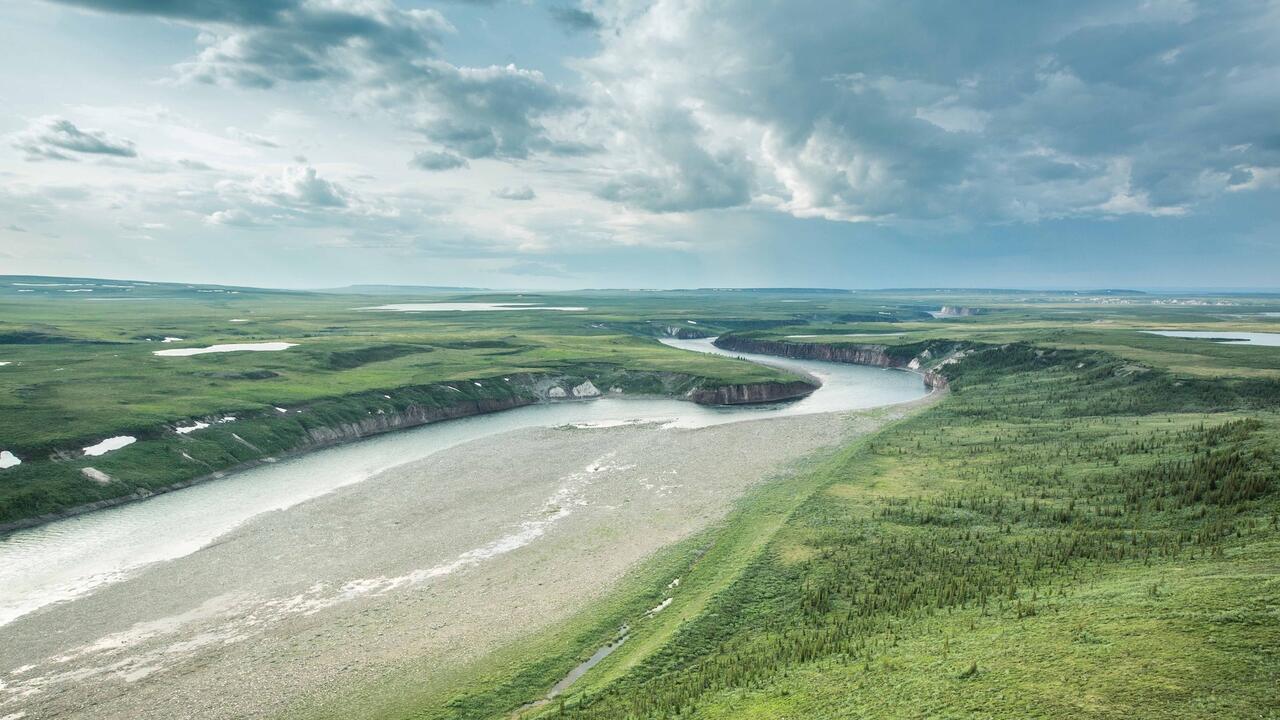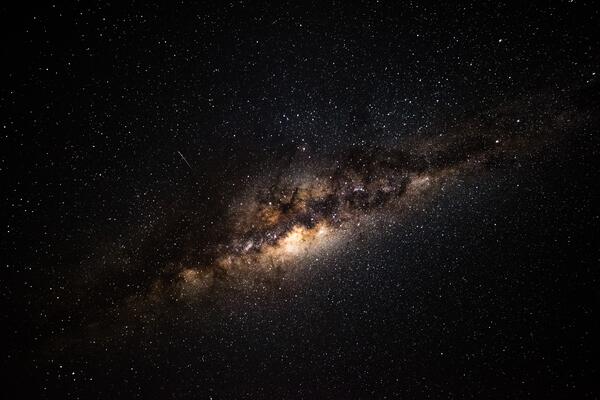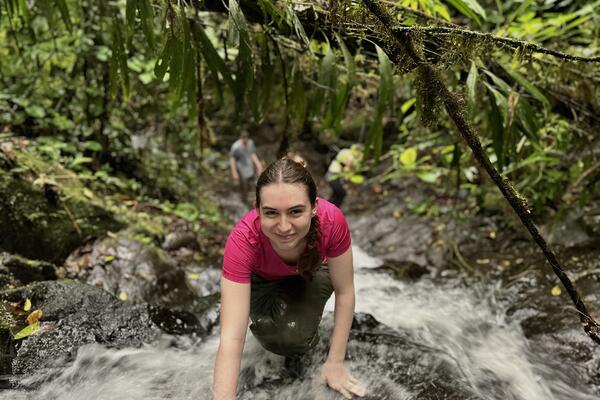
Conserving Arctic char with Western science and Indigenous knowledge
A PhD student partners with Indigenous elders and fishers to understand a changing fish population in Nunavut

A PhD student partners with Indigenous elders and fishers to understand a changing fish population in Nunavut
By Rose Simone University RelationsPhD student Spencer Weinstein is using research techniques from fundamental biology and ecology to determine if the Arctic char fish population near Kugluktuk, Nunavut is declining.

Spencer Weinstein
PhD student, Faculty of Sceince
> Kugluktuk Hunters and Trappers Organization
> Indigenous communities
But Weinstein knows that to gain a holistic understanding of the changes that are occurring, she must also incorporate the knowledge and stories shared by the Indigenous people who live there.
Weinstein is working with the Kugluktuk Hunters and Trappers Organization to incorporate their knowledge into the research project so we can all better understand what is going on in the Coppermine River. 
Weinstein wants to determine if the char are declining and whether another fish species might be moving in and competing with the char, and she is looking for indications of hybridization and genetic changes in the fish.
One would never guess Weinstein would end up working with an Indigenous community in the far north. Originally from New Jersey, Weinstein did her master’s degree in Texas, studying rainbow trout.
But during her undergraduate studies, she participated in an experiential learning trip to a Cree community in Quebec. That sparked a deep respect for Indigenous communities, their knowledge and relationships with the land.
A key principle of the work done under the supervision of Heidi Swanson, a Waterloo associate professor in Biology and Research Chair in Fresh Water Ecology, is that it should focus on questions the community wants answered, Weinstein says. “We want to know from the get-go that what we're doing is important to them.”
The partnership with the Kugluktuk Hunters and Trappers Organization is critical because the fish samples come from local fishers, rather than setting up nets and taking additional fish out of the river.
The partnership has been especially important during the COVID-19 pandemic. Typically, Weinstein would be in the community taking photographs of the fish and getting samples of the fins for genetic analysis. In 2020, because of the pandemic, she couldn’t be there, but the community came through.
“We have incredible community partners who got things mobilized and were able to collect all of the samples for us. We're incredibly grateful for that. Hopefully, when travel is allowed again, I'll be able to go there again to interview elders and fishers for the traditional knowledge component.”
Is climate change driving changes in Arctic char?
Part of Weinstein’s work attempts to quantify the decline of the char and whether climate change is a driver. More than any other freshwater fish, char are adapted to cold water. It is possible, because of warmer waters, other species are moving in and competing for resources, making it harder for char to survive, she says.
The long-term effects of climate change on Arctic char populations are unknown. “But we need to do everything we can to maintain and restore habitats and populations,” she says.
Arctic char is an important food source for the Indigenous population, both culturally and in practical terms. “Most food in the grocery store is imported and is cost-prohibitive for a lot of people. Many people depend on fishing and on other traditional foods.”
Her research will inform a long-term management and habitat restoration plan to help the community maintain a sustainable fish supply. “The ultimate goal is conserving the fishery,” Weinstein says.
Climate change is most visible in the North right now, Weinstein adds, but “eventually it is going to affect all of us.”

Read more
Gravitational echoes may confirm the late Stephen Hawking’s quantum black hole hypothesis

Read more
More than 7,200 new graduates crossed the stage and are set to embark on new adventures

Read more
Sydney Johannsen discovered her love for teaching through volunteering for a Science Outreach program that connects youth with science education
The University of Waterloo acknowledges that much of our work takes place on the traditional territory of the Neutral, Anishinaabeg and Haudenosaunee peoples. Our main campus is situated on the Haldimand Tract, the land granted to the Six Nations that includes six miles on each side of the Grand River. Our active work toward reconciliation takes place across our campuses through research, learning, teaching, and community building, and is co-ordinated within the Office of Indigenous Relations.